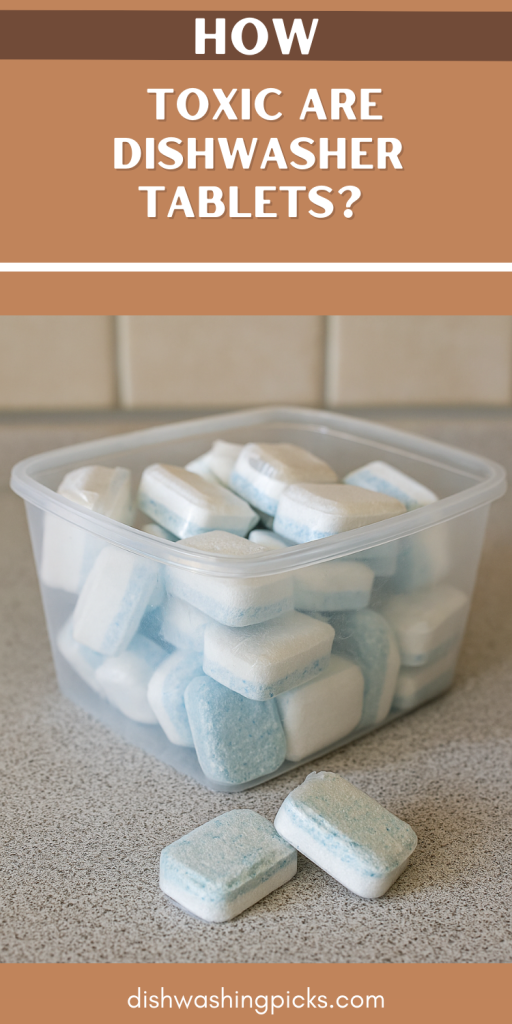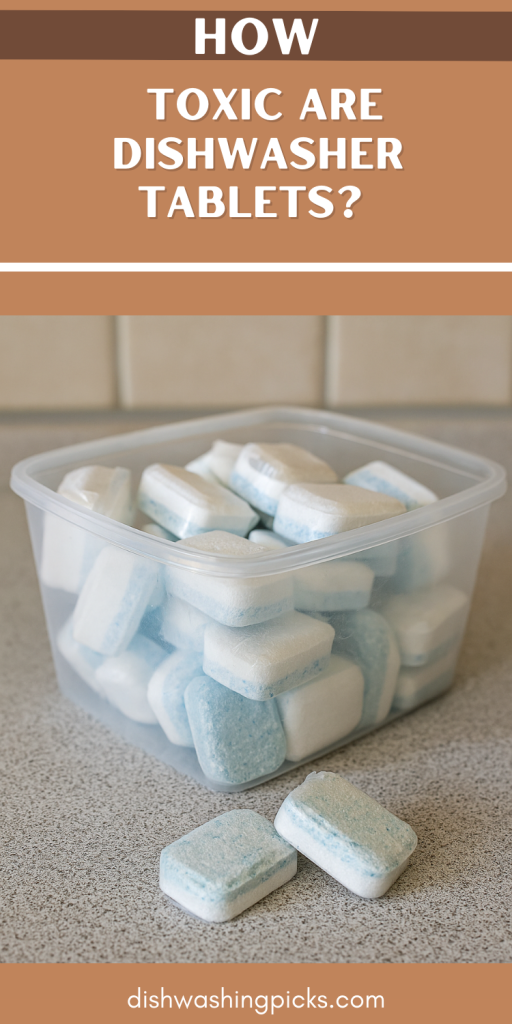
Alright, let’s get real for a sec.
You toss one of those cute little dishwasher tablets into the machine, press a button, and boom—sparkly dishes, right? Easy. But have you ever paused mid-kitchen-cleaning dance and thought, “Wait…what’s actually in those things?” Like, are they secretly tiny toxic grenades? Let’s break it down.
What Even Is in a Dishwasher Tablet?
Imagine this: your average dishwasher tablet is basically a compact, chalky chemistry experiment. It’s loaded with surfactants, enzymes, bleach agents, rinse aids, and all sorts of long science-y names that sound more like characters from a sci-fi novel than cleaning ingredients.
Now, these ingredients are there for a reason—they bust through grease, break down food particles, and leave your dishes looking showroom-fresh. But some of them? Yeah, they can be a little on the harsh side.
Ever seen a “WARNING: Harmful if swallowed” on the box? Not exactly the kind of label that makes you feel warm and fuzzy.
So… Are They Actually Toxic?
Let’s be honest—yes, technically, dishwasher tablets can be toxic. But here’s the deal: they’re only dangerous if you misuse them. Like, don’t pop one in your mouth thinking it’s candy (shocking, I know). Or leave them where your toddler or curious pet might decide to do a taste test.
Most tablets contain stuff like sodium carbonate, enzymes, bleach, and sometimes even phosphates. These can cause skin irritation, eye burns, or stomach trouble if ingested. Yikes.
But in the context of cleaning your dishes? Totally safe. They’re designed to dissolve in a controlled environment (hello, hot water and closed door) and rinse away completely.
Wait… Do They Leave Residue on My Dishes?
Ooh, great question! Here’s the thing: if your dishwasher is working properly and you’re not cramming it full like it’s a suitcase before a vacation, there shouldn’t be any noticeable residue.
That said, some people have sensitive systems and can react to leftover rinse agents or soap film. If you’re worried, switch to eco-friendly or fragrance-free tabs—they usually have fewer irritants.
Or hey, try giving your dishes a sniff test. If they smell like lemons and chemicals got into a fight, maybe it’s time to rethink your brand.
What About the Environment? Do They Mess That Up Too?
Ah yes, the eco-conscience moment. We love to see it.
Traditional tablets (especially those with phosphates) can mess with water ecosystems when they eventually get washed down the drain. That’s why many places have actually banned phosphate-containing detergents.
But good news: lots of brands now offer biodegradable, plant-based, or low-tox options that clean just as well without making fish cry.
So yeah, you can keep your dishes clean and your eco-karma intact.
Should You Be Freaked Out?
Nope. Don’t panic.
Dishwasher tablets are like power tools—super handy when used right, but not something you wanna play around with. Keep them out of reach of kids, store them properly, and maybe read the label once in a while (weird, I know).
And if you’re ever unsure about ingredients, look for cleaner brands or check with the Environmental Working Group (EWG) for safety ratings.
Quick Tips :
- 👶 Got kids or pets? Use a childproof latch or keep tabs on a high shelf.
- 🌿 Wanna go low-tox? Look for tabs labeled “phosphate-free” or “plant-based.”
- 💧 Not sure your dishes are rinsing clean? Run an empty cycle with vinegar to freshen things up.
Final thought? Dishwasher tablets aren’t the villains of the kitchen—but they’re not innocent either. Use ‘em smart, store ‘em safe, and maybe don’t eat one. (Seriously.)

